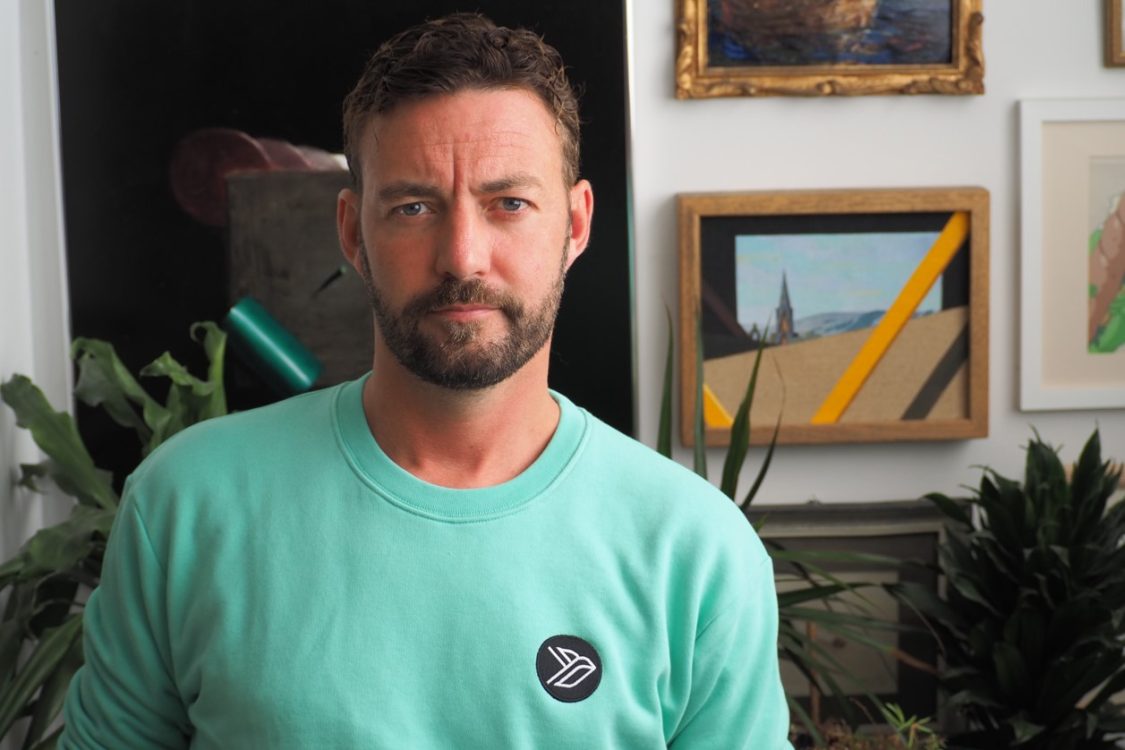Purple Dot Technologies secures £1.35 million Seed investment led by Connect Ventures

Purple Dot, a new FinTech firm for the fashion industry, raises £1.35m from Connect Ventures
Customers don’t need every fashion item the following day, most are willing to wait a short while to get a better price – this is where Purple Dot comes in
- Purple Dot is a payment plug-in like Klarna or Clearpay that doesn’t encourage consumers into debt, instead offering a ‘worth-the-wait’ price
- Purple Dot lets consumers request a fashion item at a price slightly below the RRP – brands can then determine whether to sell a product at that rate over a 1 to 8 week waiting period (this is the ‘worth-the-wait’ option)
- Founded by former Skyscanner employees Madeline Parra (CEO) and John Talbott (CTO), Purple Dot has raised a £1.35m seed round from Connect Ventures, AI Seed and Moxxie Ventures, as well as a number of high-profile angel investors
- The payments technology is helping fashion houses and brands tackle the unsold inventory problem, and is helping brands reduce their carbon footprint by reducing waste / leftover stock
- This ‘worth-the-wait’ model reduces the impact of drastic sales on profitability for retailers, reducing their need for deep discounts at the end of a season
London, UK – Purple Dot, the ‘worth-the-wait’ payment option for fashion brands, today announces its seed round of £1.35 million, led by Connect Ventures, with support from, AI Seed, Moxxie Ventures, Andy Chung and Philipp Moehring from AngelList, Vijay Pandurangan (ex-Twitter), Alex Roetter former SVP of Engineering at Twitter and the family office of Paul Forster, co-founder of Indeed.com.
Founded in August 2019 by senior Skyscanner employees Madeline Parra (CEO) and John Talbott (CTO), Purple Dot is helping fashion brands tackle wasted inventory, drastic sales tactics, and the profit erosion that comes with it.
The Purple Dot model is simple – it allows consumers to request a ‘worth-the-wait’ lower price, and in return, retailers may then decide whether or not to release a product mid-season at a slightly reduced rate.
Customers pay upfront, and then wait to have the item confirmed, receiving a full refund if not. The Purple Dot payment method sits alongside ‘buy now, pay later’ finance options, but does not look to drag consumers into unsustainable debt.
The company is currently working with a variety of small boutiques across the country, and is currently in discussions with a number of major UK and US high street brands. The first major brand to partner with Purple Dot will be menswear retailer SPOKE – the integration is currently being tested and is likely to go live in November.
Protecting retailer margins:
Unsold stock is often a cause of financial uncertainty in the fashion world – with prominent brands such as The North Face and Patagonia having in the past reported that unsold stock drove them into deep losses, or close to insolvency.
Purple Dot’s model allows retailers to choose to sell their products at a reduced price mid-season, rather than being forced into panic sales at the end of it. The full price remains in play all season, they never need to strike it through, it maintains the value to the consumer of getting the item immediately (when they don’t have time to wait). By giving the brand visibility on the list of ‘worth-the-wait’ shoppers vs full price sell-through, the brand can make an informed decision on how much of their inventory to sell at the ‘worth-the-wait’ price.
Typically, the ‘worth-the-wait’ price does not fall below a 10-20% reduction from the recommended retail price (RRP). This can help reduce losses from end of season discounting, as ‘outlet’ style discounting will often involve items being sold-off at 60-80% below the RRP mark. This means that using Purple Dot’s technology can help protect profit margins for fashion brands, by significantly reducing discounting levels across the lifecycle of a range of products.
Supporting pre-ordering:
In the fashion industry, there is also a growing demand for technology that supports pre-ordering – that is, the ability to understand demand for an item months before it goes on general sale. SPOKE will use Purple Dot to pre-order and then sell their line of ‘Beta’ clothing, a range of ultra-new products that tests out new styles, designs and fabrics, with commitment to buy locked-in before an item goes on-sale.
This line is used to establish shopper demand before manufacturing, and therefore comes with a long wait time — which is perfect for Purple Dot’s ‘worth-the-wait’ payment option. More widely, this pre-order feature will help brands better manage inventory and production levels, with increased visibility on sales-levels ahead of a season.
Reducing the fashion industry’s impact on climate change:
The fashion industry is responsible for 10% of all carbon emissions, and 20% of all waste water. Incinerating clothes, which has become the de facto way for lower price-point, fast fashion brands to get rid of unsold stock, releases 2,988 pounds of carbon dioxide per megawatt hour, – more environmentally damaging than burning coal. Every second, the equivalent of one rubbish truck of textiles ends up in landfill or burned globally.
Purple Dot’s payment model is designed to help address oversupply concerns before brands need to destroy wasted stock, and to help them become more eco-conscious. The Purple Dot model can be used by brands to instead sell this otherwise unused inventory at the ‘worth-the-wait’ price instead, before incineration is the only option.
Taking on the ‘buy now, pay later’ debt ticking time bomb:
The ‘buy now, pay later’ option, where consumers often pay in three installments for fashion items has become popular with brands and e-commerce providers in recent years. However, this is potentially a ticking time bomb of bad debt, with many vulnerable, lower income groups being encouraged to take out mini loans, and many reporting that this phenomenon has had a negative impact on credit ratings.
In contrast, Purple Dot does not encourage consumers to take out debt for small purchases, nor does the startup profit from payments being made using credit facilities. The Purple Dot payment option sits alongside ‘buy now, pay later’ options, but offers a more sustainable way to make cost-savvy purchases.
In stark contrast to the growth of unsustainable ‘fast fashion’ in recent years, Purple Dot’s ‘worth-the-wait’ model is designed to actively encourage users to spend more time thinking about each purchase, whether they need it, and as to what price they would be willing to pay for it.
The age-old thinking behind Purple Dot:
The idea for Purple Dot came from the childhood experiences of the company’s founder and CEO, Madeline Parra. When out shopping, Madeline’s grandmother would often ask the store-clerk to ring her if she found an item she liked that was currently too expensive – the clerk would take down her name in the sales waitlist book.
This inspired the Purple Dot offering, allowing shoppers who are prepared to wait for a better price to do so. Merchants can keep selling at full-price, but know they have a list of shoppers in their book ready to buy at a small discount.
Madeline Parra, CEO of Purple Dot, commented:
“When shopping online today, customers can either pay the retail price or walk away. When they do walk away, the item goes through the discounting process, becomes unprofitable for the merchant and is resigned to landfill. This binary system isn’t working for anyone – the customer loses out on the item, because it may go out of stock in their size before they attempt to purchase it again, and the merchant loses the sale. Purple Dot tackles this problem head on by providing a new way to shop, taking on unsustainable, unrelenting consumerism, poor pricing tactics and profit-crunching sales at the same time.”
Pietro Bezza, General Partner at Connect Ventures, commented:
“For Connect Ventures our investment in Purple Dot extends our thesis of investing in teams who leverage software and a product-first approach to solving real-world problems. Purple Dot’s innovative proposition benefits retailers by creating a solution to their inventory problems. End of season ‘panic sales’ have long caused financial uncertainty for retailers and a negative impact on the environment in equal measure. We’re very proud to have partnered with Madeline and John in their mission to change the way we shop and to rewrite the rules of retail.”
Purple Dot showcases the worth-the-wait price upfront (typically around 10-20% lower than the RRP), enabling both parties to make a clear, informed decision on the sale. Shoppers then have the ability to pay at full-price, or pay the discounted price and wait a few weeks to find out if they are able to complete the transaction (a refund is then provided if the request is declined by the merchant).
Prior to founding the company, Purple Dot’s founders Madeline and John founded Twizoo, a big data platform for finding and displaying relevant social content, which was sold to Skyscanner in November 2017. Following the acquisition, Madeline was Head of Hotels at Skyscanner, while John was Hotels Engineering Director, responsible for integration of Twizoo into the travel giant’s technology stack.
ENDS
Media contact:
Harry Ashcroft | Burlington.cc
[email protected]
(+44) 07429108277
About Purple Dot:Purple Dot is the ‘worth-the-wait’ payment option for fashion brands. Founded in August 2019 by senior Skyscanner employees Madeline Parra (CEO) and John Talbott (CTO), Purple Dot is helping fashion brands tackle wasted inventory, drastic sales tactics, and the profit erosion that comes with it. The Purple Dot model is simple – it allows consumers to request a ‘worth-the-wait’ lower price, and in return, retailers may then decide whether or not to release a product mid-season at a slightly reduced rate. Purple Dot is backed by Connect Ventures, AI Seed, Moxie Ventures as well as prominent angel investors










